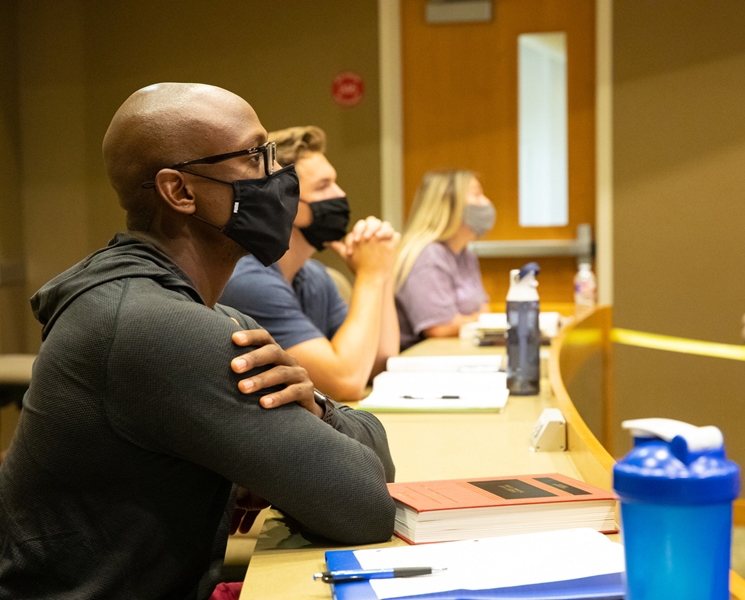FAYETTEVILLE, Ark. – Graduation rates at the University of Arkansas, as well as the one-year retention rate, reached record highs this fall as the university continues to make student success a top priority.
The six-year graduation rate increased to 68.5%, up 2.3 percentage points. The five-year graduation rate has reached 67.2%, a 1.1 percentage point increase from the previous year while the four-year graduation rate also set a new record at 53.3%, increasing 1.4 percentage points year-to-year.
Additionally, the one-year retention rate – which measures the number of freshmen who continued their education past their first year – rose to 84.7%, improving from the previous year’s 84.2% rate.
The record success rates come as the university continues to expand its student success resources across campus.
“We are pleased to see our graduation and retention rates continue to climb as we implement new programs, scholarships and initiatives to ensure every student who enrolls at the U of A has the resources available to succeed,” said Charles Robinson, provost and executive vice chancellor for academic and student affairs.
The U of A also saw significant improvement in the graduation and retention rates of diverse students. The six-year graduation rate for African American students improved to 55.9%, up 7.9 percentage points from the previous cohort, and the five-year graduation rate increased by 4.3 percentage points to 55.2%. The first-year retention rate of African American students also rose to 82.9% from 76% a year before, and the same rate among Hispanic students grew to 82.3% from 80.3%. The six-year graduation rate of Asian students improved to 75% from 66.3% the year before.
“U of A students have demonstrated tremendous grit this year as they continue to push forward with deep learning and achieving their goals,” said Trevor Francis, associate vice provost and director of student success. “The entire academic support network – academic advisors and coaches, tutors, supplemental instruction leaders, and first-year programs – has done tremendous work with being intentional in their outreach and support of students. Our hope is to continue to build upon this strong forward momentum.”
The interim Student Success Center has expanded its early alerts for students who may be struggling academically, added more academic coaches and grown its 360 Advising Program, which offers proactive outreach to students as well as mentoring, tutoring and coaching. Colleges and academic units also have added or realigned personnel to support student retention and graduation and continue to enhance academic advising opportunities for students.
Additionally, first-year experience programs such as University Perspectives, Freshman Business Connections and the Freshman Engineering Program continue to offer strong support for new freshmen.
“Our student success efforts are a campuswide undertaking, involving all aspects of our institution, and I want to thank our faculty and staff for their hard work during this challenging year,” Robinson said. “We look forward to capitalizing on this momentum with the launch of our new Student Success Center next year as we continue to align our academic and student affairs efforts.”
About the University of Arkansas: The University of Arkansas provides an internationally competitive education for undergraduate and graduate students in more than 200 academic programs. The university contributes new knowledge, economic development, basic and applied research, and creative activity while also providing service to academic and professional disciplines. The Carnegie Foundation classifies the University of Arkansas among fewer than 3% of colleges and universities in America that have the highest level of research activity. U.S. News & World Report ranks the University of Arkansas among its top American public research universities. Founded in 1871, the University of Arkansas comprises 10 colleges and schools and maintains a low student-to-faculty ratio that promotes personal attention and close mentoring.
Contacts
John Post, director of academic communications
University Relations
479-575-4449,
